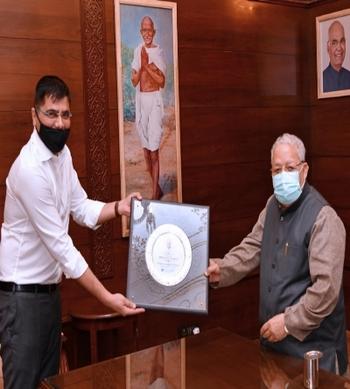CBSE Syllabus for Class 7 Science for Academic Year 2023-24
Students can easily have a thorough understanding of each topic from the CBSE Class 7 Science Syllabus. The Central Board of Secondary Education (CBSE) seeks to meet students' educational needs in the most comprehensive way possible. Here, we provide the CBSE Class 7 Science Syllabus, which is important for gaining a clear concept of the actual test questions and grading guidelines established by the board. It gives CBSE Class 7 pupils access to the crucial science topics covered in the class's science curriculum. These are in fact created by academic specialists to gauge students' subject knowledge. All of the chapters are listed in the syllabus's divisions into the various areas of physics, chemistry, and biology.
Skip to
2023-24 CBSE Class 7 Science Syllabus
Below you will find the CBSE unit-wise syllabus for Class 7 students.
| Unit | Unit Name | Section |
| 1 | Food | Food from where Utilisation of food |
| 2 | Materials | Materials of daily use Different kinds of materials How things change/ react with one another |
| 3 | The World of the Living | Surroundings affect the living The breath of life Movement of substances Multiplication in plants |
| 4 | Moving Things, People and Ideas | Moving objects |
| 5 | How Things Work | Electric current and circuits |
| 6 | Natural Phenomena | Rain, thunder and lightning Light |
| 7 | Natural Resources | Scarcity of water Forest products Waste Management |
CBSE Class 7 Science Syllabus Chapter Names
Students must cover the CBSE Class 7 Science Syllabus by studying above mentioned topics from the NCERT Science textbook.
Chapter 1: Nutrition in Plants
Chapter 2: Nutrition in Animals
Chapter 3: Fibre to Fabric
Chapter 4: Acids, Bases and Salts
Chapter 5: Physical and Chemical Changes
Chapter 6: Respiration in Organisms
Chapter 7: Transportation in Animals and Plants
Chapter 8: Reproduction in Plants
Chapter 9: Motion and Time
Chapter 10: Electric Current and its Effects
Chapter 11: Light
Chapter 12: Forests – Our Lifeline
Chapter 13: Wastewater Story
The Class 7 Science Lab Manual is also made available to the students by NCERT. It includes a list of experiments, tasks, project materials, and lab kit information. This will help students comprehend how science is used in real-world situations.
Conclusion
The conclusion of the CBSE Class 7 Science syllabus encompasses a wide range of scientific concepts and topics that aim to develop students' understanding of the natural world, scientific inquiry, and practical applications of science. By the end of the syllabus, students should have gained knowledge about various branches of science, scientific principles, and their relevance in everyday life.
FAQ's
Q 1: How can I improve my understanding of scientific concepts in Class 7 Science?
A1: Actively engage in class discussions, ask questions, and take notes during lectures. Read the textbook thoroughly and supplement your learning with additional resources like reference books, online tutorials, and educational videos. Conduct hands-on experiments and practical activities to reinforce your understanding.
Q2: How can I prepare for the practical component of the Class 7 Science exam?
A2: Review the practical experiments mentioned in the textbook and understand the underlying concepts. Practice performing the experiments in a controlled environment, recording observations, and drawing conclusions. Familiarize yourself with the common laboratory apparatus and safety precautions.
Q3: Are diagrams and illustrations important in the Class 7 Science exam?
A3: Yes, diagrams and illustrations are crucial for understanding and explaining scientific concepts. Practice drawing and labeling diagrams accurately. Pay attention to the specific features and details required for each diagram. Use diagrams to support your answers wherever applicable.
Q4: How can I score well in the Class 7 Science exam?
A4: Review the syllabus thoroughly, understand the concepts, and practice answering different types of questions. Pay attention to the keywords used in the question and structure your answers accordingly. Use relevant examples and scientific terminology to support your answers. Regular revision and solving previous years' question papers can also help improve your performance.
Download CBSE Class 7th Science syllabus 2023-24 PDF

MissionGyan Team
We aim to eradicate the education gap and serve equal and free education to all with the help of skilled and expert volunteers and teachers.





